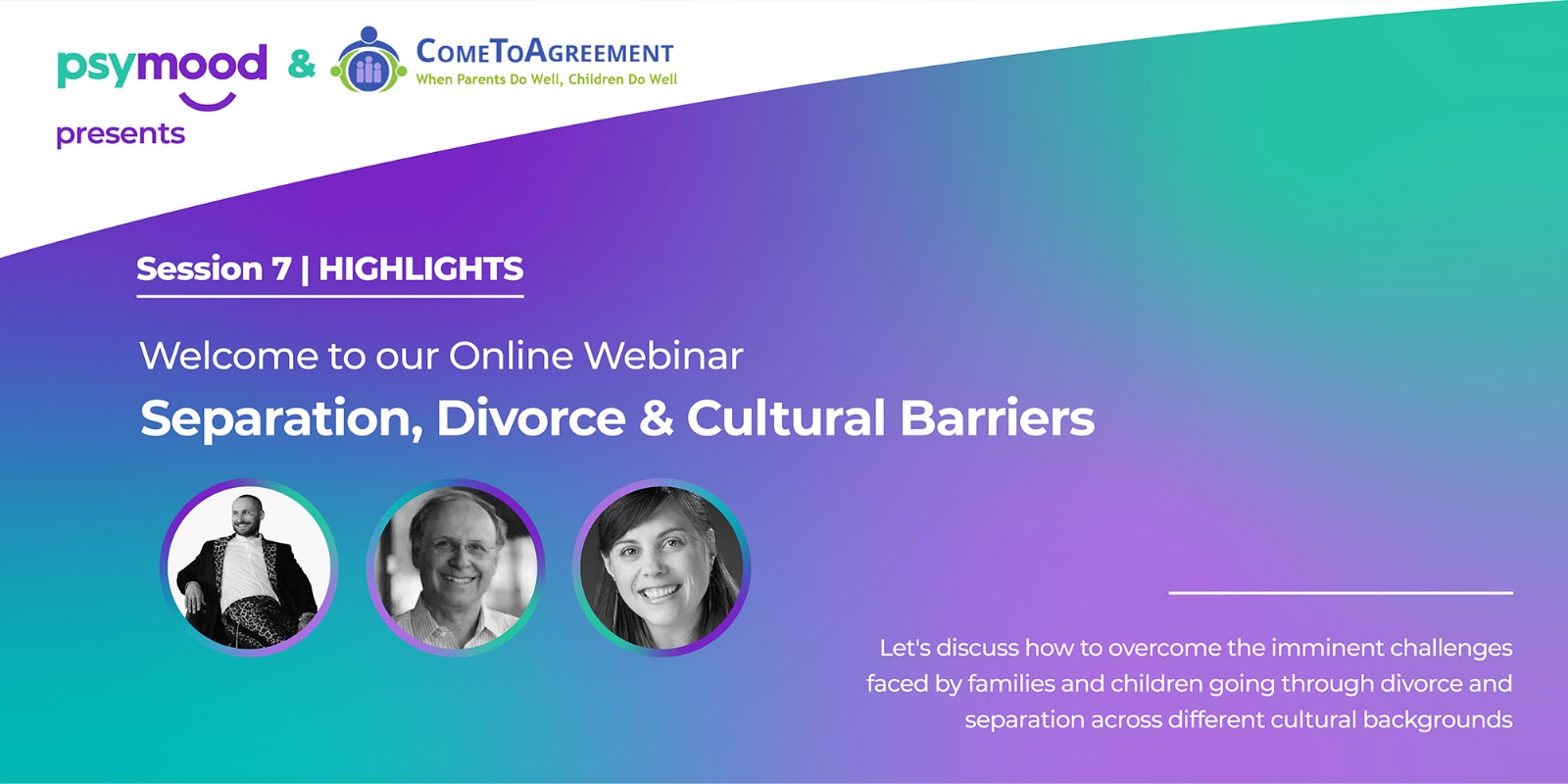Many cultures have considered divorce and separation as a signal of failure or selfishness, for not trying harder to maintain the marriage.
It’s time to change this reality. No matter what gender, race, religion, or cultural background, all separated or divorced spouses deserve support at this delicate moment, and the right to talk about their feelings and struggles without judgment.
At PsyMood, our mission is to connect people with mental health support based on their language and cultural background.
Come to Agreement specializes in online products to help co-parents with separation and divorce processes, benefiting moms, dads, children, grandparents, as well as their family law and mental health professionals. The goal is to build healthier ex-family relationships, while improving communication by providing needed resources and support.
In this co-branded session in partnership with Come to Agreement, our speakers talk about how to overcome the imminent challenges faced by families and children going through separation and divorce across different cultural backgrounds.
Going through a separation or divorce can be very difficult for everyone. Beyond the necessary time to adapt to the new reality, many cultures and communities see these processes as negative. It’s perceived as a sign of failure caused by personal flaws or weakness of either or both spouses.
The societal consequences and emotional effects of separation or divorce are heightened for co-parents, as they also need to navigate the complications of new lives for their children. We acknowledge how important it is to encourage open dialogue and provide access to educational resources that can make the transition easier and prevent negative implications for mental health, such as high-stress levels, that can lead to more serious outcomes.
Below are highlights from the session:
If you’re interested in watching the full session, click on this link: PsyMood Session 7 – Separation, Divorce & Cultural Barriers
Featured Specialists:

Ross Wilson
Ross Wilson is a Chaplain and Mental Health consultant that specializes in psychological first aid support. Since arriving in Ottawa, Canada from Vancouver. Ross has been working closely with local community organizations and offering free mental health support during the recent pandemic. As a mental health consultant, Ross Wilson works one on one with companies, community programs and start-ups, to improve employee environments and mental health first-aid. Along with his work, Ross is writing his first book about the “Journey of self” and has a podcast that is based on mental health and the stigma behind it in society.

Stephen Rosenfield
Stephen Rosenfield has practiced Family Mediation and helped families resolve separation and divorce issues since 1999, in the Greater Toronto Area. Stephen's goal is to help families in conflict, including families struggling with ADHD issues, build better lives. He invests in his clients, treats them honestly, responsibly, and fairly. These are the core values in Come To Agreement's separation and divorce products. Stephen believes that initiating a strategic online process, with the right Family Law Tools, helps Parents Do Well and Children Do Well.
Previously, Stephen worked for twenty years in business and in the financial sector, as a General Manager, Sales Manager, for a Trustee in Bankruptcy and as a Financial Analyst, then returned to his true passion - helping others through conflict resolution.

Nadia Prando
Nadia Prando is a Therapist of family, children and teenagers. Depending on the needs of her clients, Ms. Prando makes use of Emotion Focused Therapy (EFT), Cognitive-Behavioral Therapy (CBT), Cognitive Processing Therapy (CPT), and Dialectical Behavioral Therapy (DBT) approaches. She provides Emotion-Focused Couple Therapy (EFT) and Emotion-Focused Family Therapy (EFFT) to support families in improving their communication and connection with one another. Ms. Prando also facilitates Dialectical Behavior Therapy (DBT) groups and Mindfulness Self-Compassion groups.


.png)
.png)
.png)
Recent Comments